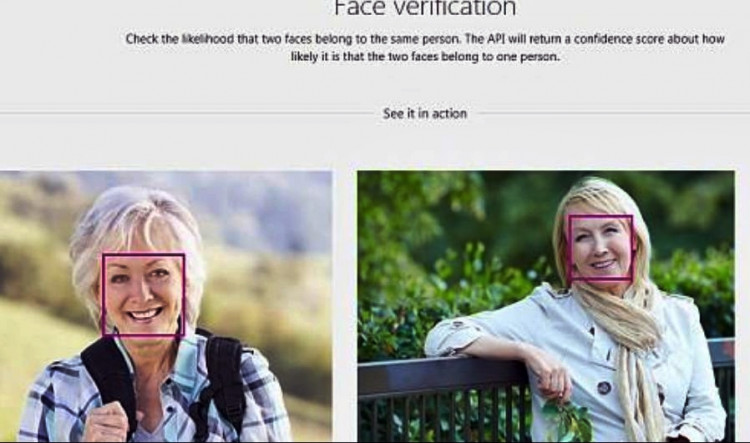Microsoft president Brad Smith is calling on the U.S. Congress to regulate the development of computer-assisted facial recognition technology, an invasive system with human rights ramifications driven by artificial intelligence (AI) where China prides itself as being the world leader.
In a lengthy blog post over the weekend, Smith called for Congress to seriously consider regulating computer-assisted facial recognition technology, noting its broad societal ramifications and potential for abuse.
He defined computer-assisted facial recognition as the ability of a computer to recognize people's faces from a photo or through a camera. This technology can have beneficial uses such as helping reunite, but can be and will be misused and abused by governments and private companies, as well.
"Facial recognition technology raises issues that go to the heart of fundamental human rights protections like privacy and freedom of expression," Smith pointed out. "These issues heighten responsibility for tech companies that create these products. In our view, they also call for thoughtful government regulation and for the development of norms around acceptable uses."
He said that in a democratic republic (such as the United States), there is no substitute for decision making by elected representatives regarding the issues that require balancing public safety with the essence of democratic freedoms.
"Facial recognition will require the public and private sectors alike to step up -- and to act."
The danger to human freedoms is that computer vision to get better and faster at recognizing people's faces due to the development of better cameras; sensors and machine learning capabilities. It's also due to the growing ability to use the cloud to connect all kinds of data and facial recognition technology with live cameras.
Imagine a government tracking everywhere you went to over the past month without your permission or knowledge, asked Smith. He also asked people to imagine a database of everyone who attended a political rally that constitutes the very essence of free speech.
This terrifying reality is now on the verge of becoming possible thanks to computer-assisted facial recognition.
An equally serious danger we face is the many flaws that plague facial recognition technology, flaws that will make it likelier for innocent people to seem guilty to governments.
Smith said facial recognition technology is far from perfect. He noted the many news reports about biases in the performance of several operational face recognition technologies, such as those from Microsoft. Strangely, existing technologies work more accurately for white men than for white women, and were more accurate in identifying persons with lighter complexions than people of color.
Smith argues the only effective way to manage the use of technology by a government is for the government to proactively manage this use itself. He said the only way to regulate this broad use is for a government to do so.
"This, in fact, is what we believe is needed today -- a government initiative to regulate the proper use of facial recognition technology informed first by a bipartisan and expert commission."
Smith said Microsoft believes Congress should establish a bipartisan expert commission to assess the best way to regulate the use of facial recognition technology in the U.S. He said this expert commission should build on recent work by academics and in the public and private sectors to assess these issues and to develop clearer ethical principles for this technology.
He said the purpose of such a commission should include advice to Congress on what types of new laws and regulations are needed, as well as stronger practices to ensure proper congressional oversight of this technology across the executive branch.






